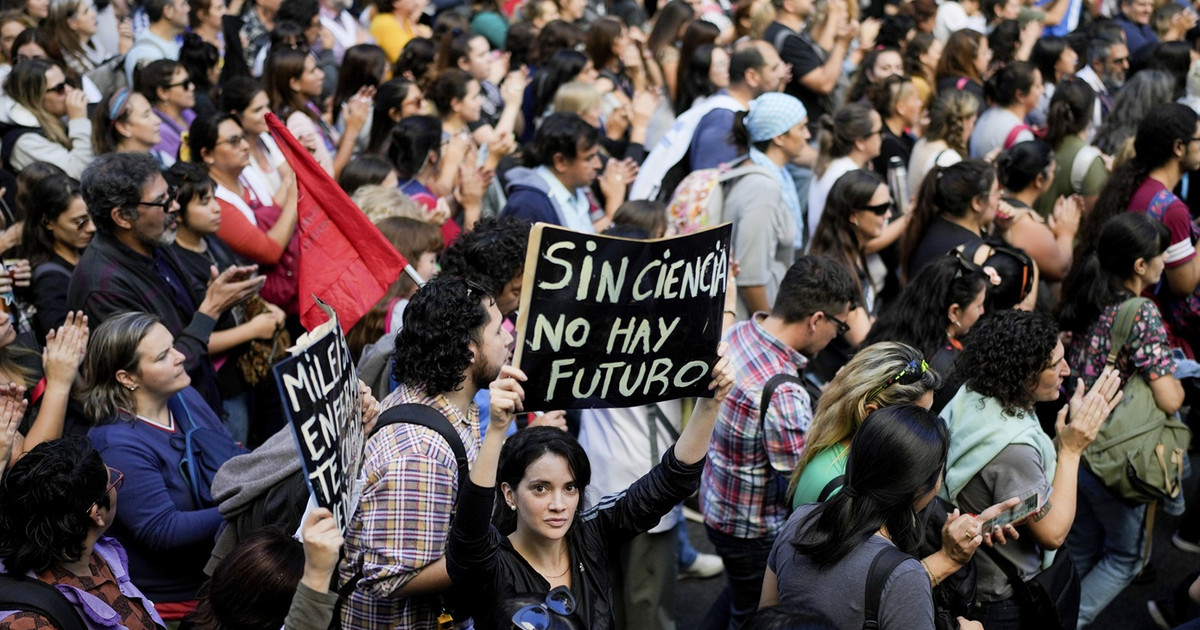Six months after the enactment of a law and the signing of a decree in favor of menstrual health, the federal government still has no plans to put into practice the free distribution of sanitary pads to vulnerable and low-income women.
The complete law that instituted the Menstrual Health Protection and Promotion Program, to ensure the free supply of feminine sanitary pads and other basic menstrual health care, was enacted in March of this year.
The 120-day deadline for it to come into force expired in July. The program’s beneficiaries are low-income students enrolled in public schools, women living on the streets or in situations of extreme social vulnerability, women apprehended and imprisoned, collected in units of the penal system, and women hospitalized in units for compliance. of socio-educational measure.
wanted by CNN the Ministry of Health defended that it “works legally, with legal support, as it is a new initiative that involves the transfer of resources”, due to the limitations of the electoral period.
Electoral legislation prohibits the voluntary transfer of funds from the Union to states and municipalities and from states to municipalities in the three months prior to the election, under penalty of nullity as of right.
Funds destined to fulfill a pre-existing formal obligation for the execution of work or service in progress and with a preset schedule, as well as those destined to respond to emergency and public calamity situations, are excepted. That is, there cannot be this type of resource transfer since July 2nd.
Meanwhile, the women who should be served by the program continue without receiving the planned sanitary pads. According to the Ministry of Health, the program is not yet fully ready.
The folder informed that it “is under preparation and will be regulated in an ordinance”. The ministry said that “the publication will bring, among other details, the start date for the transfer of resources to the municipalities for the acquisition of absorbents to serve the public”. There is no estimated date as of yet.
The report asked for a series of detailed information on the subject since August 18, but the ministry only reiterated that the “beginning of the transfer of resources to municipalities to purchase sanitary napkins will take place after the publication of an ordinance”.
Arm wrestling between Bolsonaro and Congress
On March 8 of this year, at an event on Women’s Day, the President of the Republic, Jair Bolsonaro (PL), signed a decree to combat menstrual precariousness and to distribute sanitary pads for free, among other hygiene items. Contrary to the law, the decree came into force as soon as it was published.
The decree was signed on the eve of the overthrow by Congress of a presidential veto that had the objective of not allowing the free distribution of sanitary pads. the Menstrual Health Protection and Promotion Program.
When sanctioning the text, however, Bolsonaro vetoed an excerpt that provided for the supply of sanitary pads and another that brought the list of beneficiaries, among other points. At the time, he claimed lack of funding source and incompatibility with the autonomy of educational networks and establishments.
The president decided to sign the decree amid the mobilization of parliamentarians to overturn his veto, which ended up happening two days after the act. The law was enacted later, also in March of this year.
Execution conditional on available resources
The decree signed by Bolsonaro says that the act of the Ministry of Health will establish “the form of execution and the procedures for the adhesion of federative entities to the program within the scope of the Unified Health System (SUS)”.
Furthermore, it determines that the execution of the program is “conditioned to budgetary and financial availability”. At the time of signing the decree, the Minister of Health, Marcelo Queiroga, said that R$ 130 million will be allocated to the menstrual health program.
Questioned by CNN the ministry did not answer what actions are being taken to ensure the free supply of feminine sanitary pads and other basic menstrual health care, as governed by the law in force.
Draft ordinance is ready, ministry says to senator
The leader of the women’s bench in the Senate, Eliziane Gama (Citizenship-MA), sent a request for information to the Ministry of Health with a series of questions about the application of the program and the distribution of sanitary pads in mid-August.
“Menstrual poverty is a public health problem and the delay in regulating and implementing the effective application of Law No. 14,214 of October 6, 2021 harms more than 6 million women and girls in situations of social vulnerability. This delay is inconceivable, it is disrespectful to low-income Brazilian women who need to use newspaper, bread crumbs and cloth during their menstrual period,” she wrote in the justification for the request.
On Wednesday (14), the Ministry of Health informed the senator that it had started the necessary procedures for the elaboration of the ordinance and defended that, since the publication of the law, the Secretariat of Primary Health Care has been organizing meetings with the Cycles Departments of the Life, Family Health and Health Promotion, which have health actions and services aimed at beneficiaries covered.
A regulatory impact analysis was completed and made available for contributions from various areas of the ministry. From the document, a draft of the ordinance was made.
“Currently, the draft of the ordinance is in the evaluation phase, for later validation by the Office of the Secretariat of Primary Health Care and, therefore, its publication by the Ministry of Health”, said the folder to the senator.
The draft must also be submitted to legal advice for an opinion on the legality and feasibility of its publication in 2022. The ministry pointed out that the publication of the ordinance comes up against electoral legislation, which prohibits the transfer of resources within three months of the election, as informed the CNN .
“At the moment, it is not possible to set a date for the publication of the ordinance in question, although all necessary efforts are being made to make this happen as soon as possible”, said the federal government. Health still articulates a possible date with the National Council of Health Secretaries (CONASS) and the National Council of Municipal Health Secretaries (CONASEMS) to deal with the matter.
Other planned actions
The decree signed by Bolsonaro says that the Ministry of Justice and Public Security will encourage the implementation of projects, programs and actions aimed at making sanitary pads available to women deprived of their liberty, collected in units of the penal system. report to look for the National Penitentiary Department (Depen).
He informed that he had made R$ 3,796,000 available in resources from the National Penitentiary Fund to be transferred to the federative units for actions in the area, with guidelines sent by the Coordination of Policies for Women and Promotion of Diversity.
Depen also mentioned the implementation of a pilot workshop project for the production of sanitary pads and bioabsorbents by women deprived of their liberty. It is expected to cost at least R$ 1.5 million.
“The project is in the procedural instruction phase, and to date, there is no transfer of funds for its execution”, he observed.
According to official figures from December last year, there are 30,625 women deprived of their liberty in physical cells in the Brazilian prison system, he said. Under house arrest, 11,659 women are accounted for. The estimate is that 73% of them are between 18 and 45 years old, and therefore menstruate, informed the Depen press release.
The decree also states that the Ministry of Education will promote, in collaboration with the federative entities, an information campaign in public schools on menstrual health and its consequences for women’s health, observing the guidelines defined by the Ministry of Health.
Questioned by CNN the Ministry of Education did not respond.
The enacted law also establishes that the basic food baskets delivered under the National Food and Nutrition Security System (Sisan) must contain the feminine sanitary pad as an “essential item”.
The Ministry of Citizenship, responsible for Sisan, also did not manifest itself when asked by the CNN .
UN points out that almost 90% of girls will spend up to 7 years in school menstruating
A report by the United Nations Population Fund Brazil (UNFPA) and the United Nations Children’s Fund (Unicef) on menstrual poverty in the country, published last year, points out that almost 90% of girls will spend between 3 and 7 years of age her school life menstruating.
According to UNFPA and Unicef, around 321,000 students, 3% of all Brazilian female students, study in schools that do not have a clean bathroom, the most critical situation in the Northeast and North.
The document also shows other infrastructure difficulties, such as a lack of toilet paper, soap and a sink in conditions of use.
“Almost 200,000 students are totally deprived of the minimum conditions to take care of their menstruation at their school”, he says.
In the assessment of United Nations funds, the problems “would be easily prevented with proper investments in infrastructure and access to menstrual products”.
“In addition, when experienced since childhood, menstrual poverty can also result in emotional suffering that hinders the development of an adult woman with her fully exploited potential”, he adds.
Source: CNN Brasil






